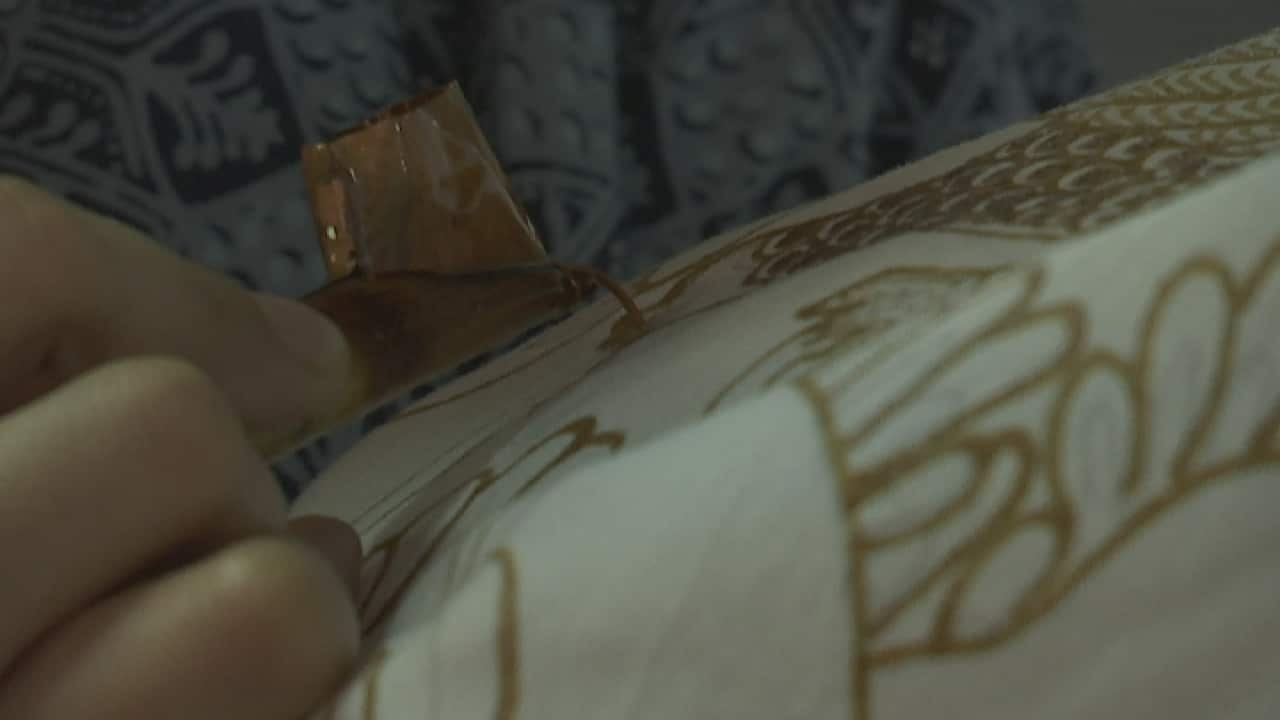For many tourists in Indonesia, the brightly-coloured, patterned shirts adorning shop windows are merely souvenirs – a novel reminder of a trip to an exotic location.
For Astri Astariani, however, the intricate designs, known as batik, symbolise the survival of an ancient Javanese tradition, passed down through generations.
The 31-year-old works as a batik-maker at Batik Plentong, a small company built by her grandmother in the bustling Indonesian tourist city of Yogyakarta.

Sitting among a small group of women, sweat forms on Astri’s brow as she delicately applies hot wax to a silk cloth, the small fan in the corner doing little to fight the stifling 40-degree heat.
“To produce one two-metre batik, it really needs a long process and is very hard work,” she said.
The batik process begins by tracing the pattern on the fabric – first with pencil, then hot wax. The fabric is then dyed and the wax removed.
At Batik Plentong, everything is done by hand, and one garment can take two months to produce, selling for $AU80 to $AU100.
But recent years have seen an increase in machine-made, mass-produced batik. The printed versions are cheaper to make and buy and many tourists, and even locals, are unable to tell the difference.
Astri worries the popularity of printed batik will eventually cause traditional methods to die out.
“To see people using machines like that, it breaks my heart a little,” she said.
“This is actually a very old culture of Indonesia and that’s why we try to preserve the tradition so the young generation can do this.”
The factory regularly opens to the public, with Astri hoping to educate tourists and school groups about the traditional technique.
“Local people also don’t know, especially for the young generation, which is the handmade and the machine,” she said.
“That’s why we try to explain… and give a batik course to them.
“We don’t have the tradition of writing lists like that… it’s usually just by speaking and giving stories.
“To preserve tradition they have to know about that and hopefully some day they can teach their grandchildren.”
Ella Archibal-Binge travelled to Indonesia at the invitation of the Indonesian government.
